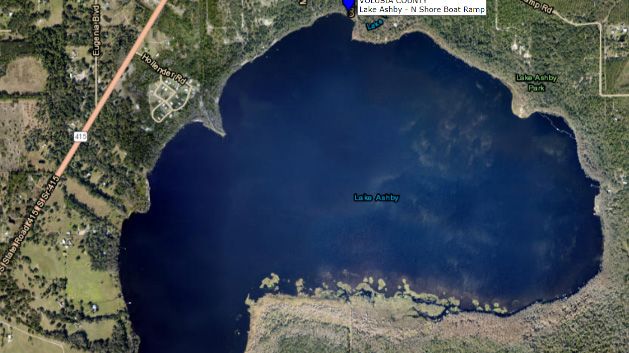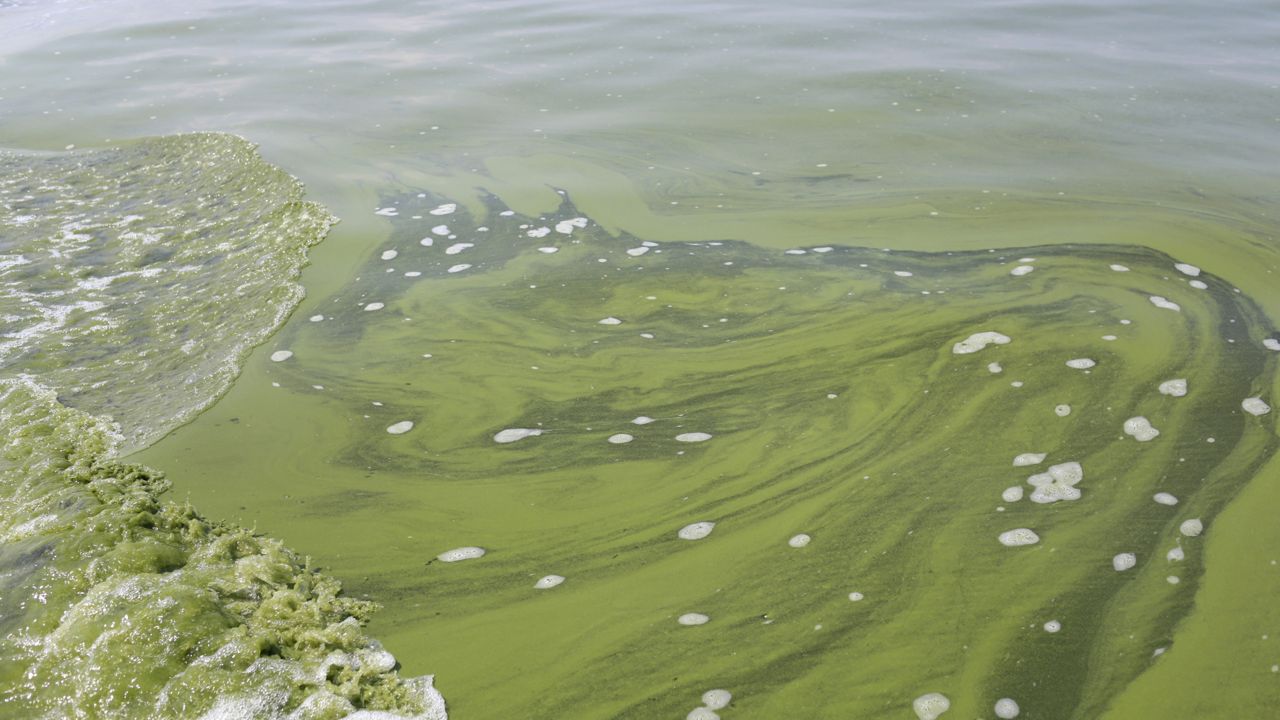NEW SMYRNA BEACH, Fla. — The Florida Department of Health in Volusia County is cautioning the public on the presence of blue-green algae in Lake Ashby in New Smyrna Beach.
Experts say blue-green algae is is common in Florida’s freshwater environments, and blooms can appear as scum, foam, or paint on the surface of the water in various colors.
According to the Florida Department of Environmental Protection, blue-green algae is not actually algae — it is cyanobacteria, a microorganism that functions like a plant "in that they use light energy from the sun and nutrients acquired from the environment to help them grow."
Cyanobacteria produces dangerous toxins that can be found in high concentrations during a bloom event.
"Unfortunately, there are no visual signs that might indicate when blue-green algae are producing toxins, so people and animals should not drink or swim in water where blue-green algae blooms are present," the DEP said on its website.
Department of Health officials say water sample testing is underway, because blue-green algae has the potential to produce dangerous toxins.
However, even if toxins have not been confirmed yet, officials say it is important to exercise caution as environmental conditions can change at any time.

Health officials urge residents and visitors to take the following precautions:
- Do not drink, swim, wade, use personal watercraft, or come into contact with waters where there is a visible blue-green algae bloom.
- Wash your skin and clothing with soap and water if you have any contact with algae or discolored water that smells unpleasant.
- Keep pets and livestock away from the area to avoid any contact with water. Waters where algae blooms are present are not safe for animals. Pets and livestock should use an alternative source of water when algae blooms are present.
- Do not cook or clean dishes with water contaminated by algae blooms. Boiling the water will not eliminate toxins.
- Eating fillets from healthy fish caught in freshwater lakes experiencing blooms is safe. Rinse fish fillets with tap or bottled water, throw out the guts, and cook fish thoroughly.
- Do not eat shellfish in waters with algae blooms.
Here are additional resources on Florida algae blooms:
- To learn more about the appearance of algae blooms, visit Protecting Florida Together.
- For additional information on potential health effects of algae blooms, visit the Florida Department of Health’s harmful algae blooms webpage.
- You can subscribe to receive notifications when water quality changes in your area.
- Blooms can be reported to DEP online or by calling toll-free at 1-855-305-3903.
- Call DOH-Volusia at 386-274-0694 if you have further questions or concerns about blue-green algae.



